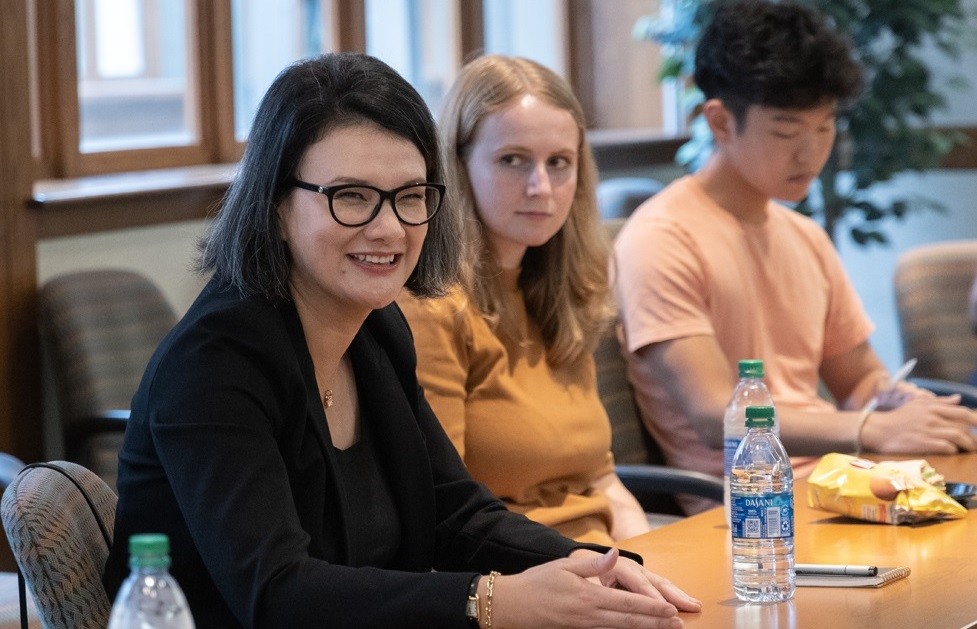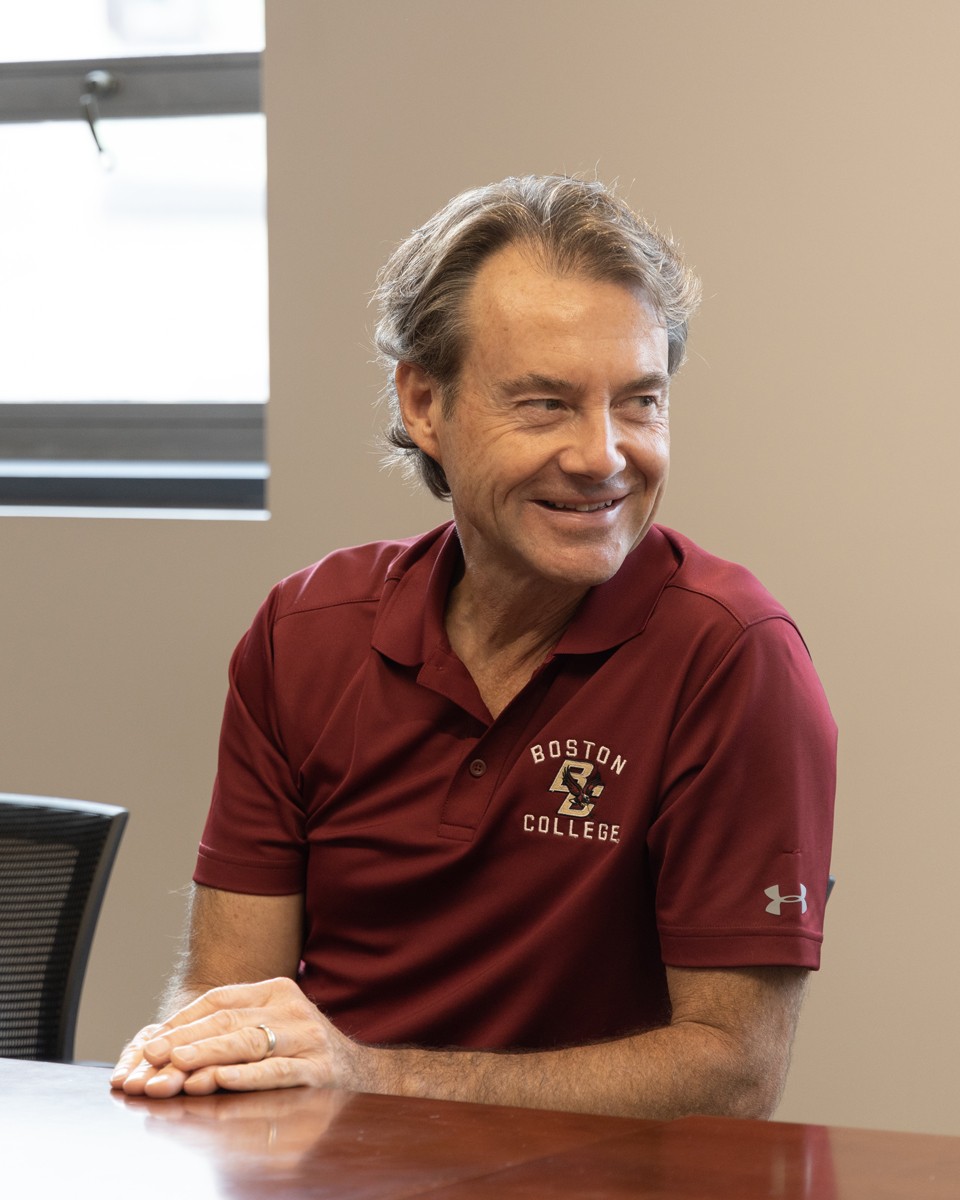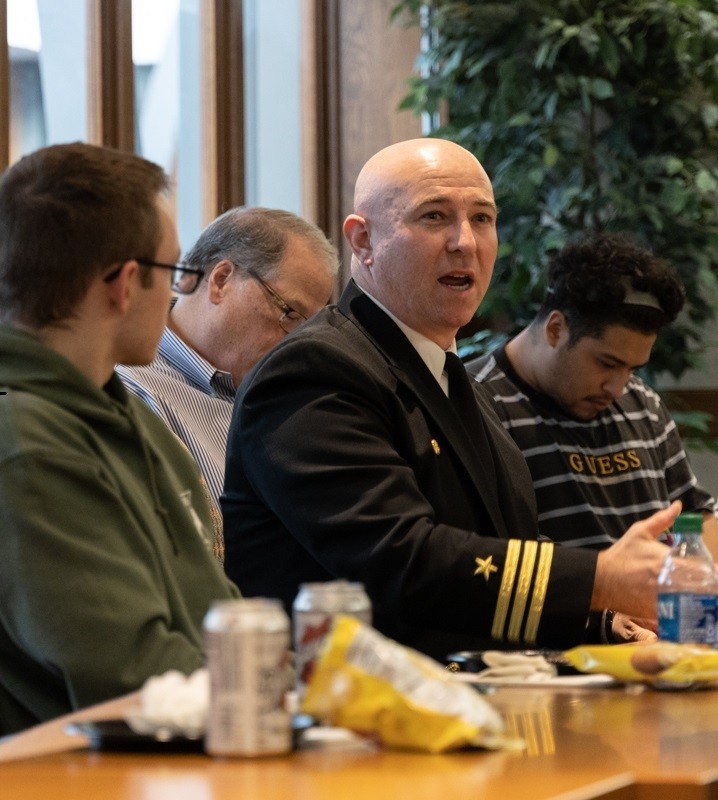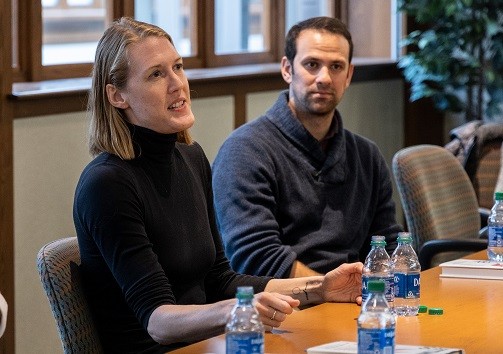Conversation with a Leader
Leadership is about knowing who you are
Donna Tiner, MSF ’97, vice president at Liberty Mutual, shared her story of perseverance, which inspired her to say, “No one is self-made.” Tiner talked about connecting with people on a human level in your work and using vulnerability as a strength to make yourself someone to be mentored. American culture believes that we need to “suck it up” or “grind it out,” but that’s not always a recipe for success. Ultimately, someone, at some point, will smell that out. Being a leader means taking the risk of being unlikable. Tiner shared that as leaders, “You have to realize you won’t be everyone’s cup of tea. You can respect someone and not like them.” Leadership means being yourself and meeting people at their level. So as long as you know who you are and grow as a person, you will provide that space for others. If you take a chance on yourself, you can do the same with others.
Dina Hernandez, SSW ’22, Winston Center Graduate Assistant







